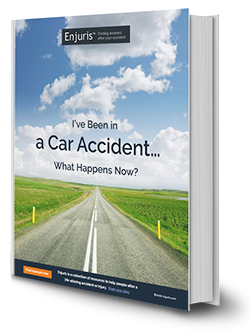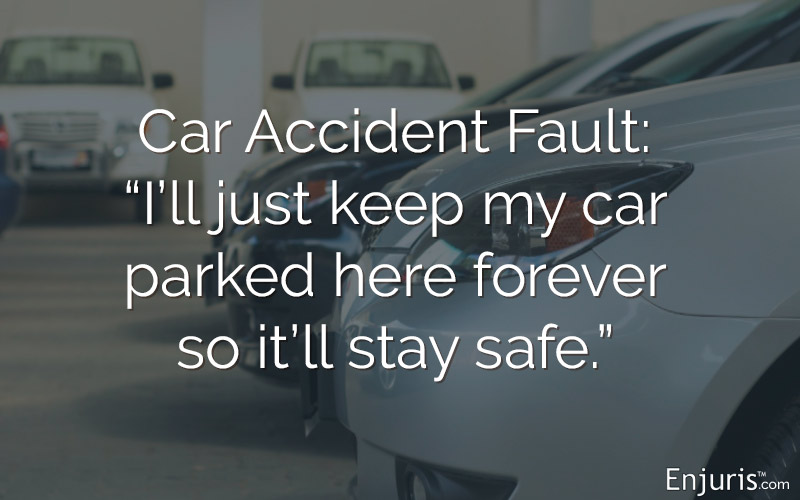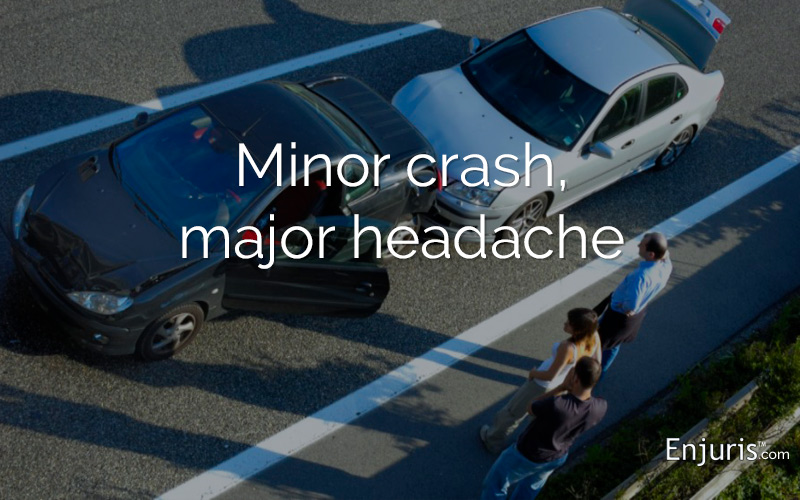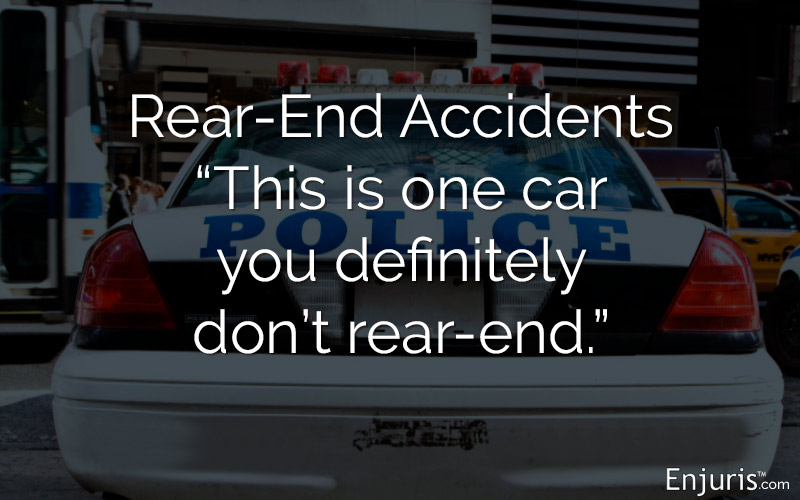From reporting the accident to recovering damages, understanding car accident laws in Missouri
There are 4.3 million licensed drivers and 5.5 million registered vehicles in Missouri. What’s more, Missouri has 33,830 miles of state highway (7th most in the country).
Unfortunately, when you have lots of cars traveling lots of miles, you’re going to have lots of accidents.
In this guide, we’ll take a look at Missouri car accidents, including the rules of the road and the steps you can take after an accident to increase your chances of recovering the damages you deserve.
Missouri car accident statistics
Missouri has averaged 154,627 car accidents annually over the last 5 years. The good news is that fatal car accidents and total accidents have generally trended downward over the last 20 years.


Source: Missouri State Highway Patrol Statistical Analysis Center
Preliminary reporting for 2020 indicates that Missouri traffic fatalities increased by 12% compared to the previous year. According to the Missouri State Highway Patrol, 989 lives were lost in Missouri traffic crashes in 2020, up from 881 in 2019.
Common types of car accidents in Missouri
Across the country, rear-end collisions are the most common type of car accident. One explanation for this is the prevalence of texting while driving.
Although rear-end collisions are the most common type of car accident in the United States, car crashes in Missouri come in all shapes and sizes.
| Missouri car crashes by type (2019) | ||
|---|---|---|
| Crash type | Fatal accidents | Total accidents |
| Animal | 9 | 5,067 |
| Bicycle | 14 | 466 |
| Fixed object | 281 | 30,560 |
| Other object | 3 | 1561 |
| Pedestrian | 101 | 1343 |
| Railway vehicle | 1 | 34 |
| Motor vehicle in transport | 312 | 103,386 |
| Parked motor vehicle | 7 | 10,485 |
| Overturn | 72 | 2636 |
| Other non-collision | 7 | 558 |
| Working motor vehicle | 1 | 279 |
| Fire/explosion | 0 | 249 |
| Immersion | 2 | 52 |
| Jacknife | 0 | 190 |
| Fell from motor vehicle | 9 | 96 |
| Cargo loss/shift | 0 | 76 |
| Total | 819 | 157,038 |
| Source: Missouri Department of Public Safety | ||
Missouri auto insurance requirements
Missouri law requires all motor vehicle drivers to carry liability insurance and uninsured motorist coverage.
Liability insurance covers the damages (up to the policy limits) sustained by the other vehicle and occupants in an accident that you cause.
The minimum level of liability coverage required by Missouri law is:
- $25,000 per person for bodily injury
- $50,000 per accident for bodily injury
- $25,000 per accident for property
Uninsured motorist coverage helps cover injuries you or your passengers sustain in an accident caused by an uninsured motorist.
Missouri law requires drivers to carry uninsured motorist coverage of $25,000 for bodily injury per person and $50,000 for bodily injury per accident.
Failure to carry the required minimum coverage may result in penalties ranging from a fine to having your license suspended. What’s more, if you cause an accident and don’t have insurance, you’ll be personally liable for all of the damages that result.
Laws impacting Missouri drivers
The laws impacting Missouri drivers can be found in Title XIX of the Missouri Revised Statutes. These laws cover everything from vehicle registration to navigating the state’s roads. Although it’s not a bad idea to read through these laws, there are 3 laws that are most likely to come into play if you’re involved in a car accident in the Show-Me State:
- Duty of care. Every driver on the road is required to exercise “reasonable care” to avoid harming others on the road. If a driver fails to exercise reasonable care and an accident results, the driver may be sued for negligence.
- At-fault insurance system. Missouri follows an at-fault (or fault-based) insurance system. This means that the driver who causes an accident is responsible for paying the resulting damages.
- Pure comparative negligence. Missouri, like some other states, has adopted the legal doctrine of pure comparative negligence. Under this doctrine, a plaintiff who’s partially responsible for their accident may only collect damages in proportion to the defendant’s degree of fault. For example, if a plaintiff is 30% responsible for their accident, they can only recover 70% of their damages from the defendant.
Post-accident requirements in Missouri
Missouri law requires drivers to do 4 things following a car accident that results in property damage, injury, or death:
- Stop your vehicle at the scene of the accident (or as close to the scene as possible),
- Provide your name, address, motor vehicle number, and driver’s license number to any person involved in the crash,
- Render reasonable assistance to anyone injured, and
- Report the accident to the local police (if someone suffered an injury or died, the other driver was uninsured, or more than $500 of property damage was sustained).
If you fail to complete these 4 steps, you may be convicted of a hit-and-run. The penalties for a hit-and-run conviction are as follows:
| Missouri penalties for a hit-and-run | ||
|---|---|---|
| Accident resulted in damages under $1,000 | Class A misdemeanor | Up to 1 year in jail and/or a fine not to exceed $2,000 |
| Accident resulted in damages in excess of $1,000, physical injury, or you were previously convicted of a hit-and-run | Class E | Up to 4 years in state prison |
| Accident resulted in death | Class D | Up to 7 years in state prison |
Pursuing damages after a motor vehicle accident
Missouri is a fault-based insurance state, which means that the person responsible for causing a car crash is also responsible for paying the resulting damages.
If you’re involved in an accident that’s NOT your fault, you have 3 options for recovering damages:
- File an insurance claim with your own insurance company (in this situation, your insurance company will pursue reimbursement—called subrogation—from the at-fault driver’s insurance company),
- File a third-party insurance claim directly with the at-fault driver’s insurance company, or
- File a personal injury lawsuit in civil court against the at-fault driver.
If the driver who caused the accident is uninsured, you can file a claim under your mandatory uninsured motorist coverage. If your damages exceed the amount of your uninsured motorist coverage, you’ll need to file a personal injury claim against the at-fault driver.
Keep in mind that, for all of these scenarios, you’ll need to prove fault. Proving fault in a car accident generally means proving that the other driver was negligent.
To establish that a motor vehicle driver was negligent in Missouri, you must show that:
- The driver owed you a duty. All drivers have a duty to exercise “reasonable care” to avoid harming others on the road.
- The driver breached their duty. To prove that a driver breached their duty, you will have to show that the driver failed to exercise a reasonable degree of care (for example, the driver was driving while intoxicated or texting behind the wheel).
- You were injured as a result of the driver's breach. It's not enough that the driver failed to exercise reasonable care, you must also prove that their failure caused your accident.
Of course, not all car accidents are caused by other drivers. Other potentially liable parties include:
- Property owners. Premises liability laws in Missouri require property owners to maintain their property free from dangerous conditions. This includes public and private roads. If you're injured as a result of a dangerous condition (such as a large pothole or defective stoplight), the owner of the property can be held liable.
- Manufacturers. If your car accident was caused by a defective component (such as a faulty brake system), the manufacturer can be held liable.
Missouri statute of limitations for car accident claims
All states limit the amount of time you have to file a personal injury lawsuit. This time limitation is called the “statute of limitations.”
Missouri has one of the most generous statutes of limitation in the country. For personal injury lawsuits, you have 5 years from the date of the accident to file your lawsuit. If you fail to do so, your lawsuit will be forever barred.
However, there are a couple of narrow exceptions to the 5-year statute of limitations. In order to protect your legal rights and take advantage of all avenues of recovery, it’s a good idea to consult a personal injury attorney as soon as possible after a car accident.
When to consult a car accident attorney
Hiring a personal injury attorney after a car accident is not a requirement. However, an attorney may be able to protect your legal rights and help you recover the damages you deserve.
If you suffered minor injuries or minor property damage, you may be able to file an insurance claim and receive the compensation you deserve without involving a lawyer. However, if any of the following are true, we strongly recommend consulting with an experienced attorney near you:
- You suffered serious physical injuries or property loss
- The other driver was uninsured
- The insurance company denies your claim or offers less than you deserve
- The car accident was a multi-vehicle accident
- The crash was caused by a defective vehicle part or dangerous property hazard
To find an experienced Missouri personal injury attorney, use our free online directory.
- What To Do After a Missouri Car Accident
- How To Handle a Missouri Bus Accident Injury Lawsuit
- Missouri Auto Insurance Laws and Frequently Asked Questions
- Missouri Aviation Accidents and Plane Crash Injury Claims
- Missouri Bicycle Laws and Personal Injury Claims
- Missouri Boat Accident Injuries & Lawsuits
- Missouri Distracted Driving Accident Laws
- Missouri Drunk Driving Accidents, Penalties & Compensation
- Missouri Train Accident Personal Injury Lawsuits and FELA Claims
- Proving Fault After a Missouri Pedestrian Accident
- What To Do If You're Involved in a Hit-and-Run Accident in Missouri
Did you know that car accident law varies by state?
Hurt in a car crash? You may find these resources helpful
Need a lawyer?
What does an injury lawyer do?
A personal injury lawyer helps individuals who have sustained injuries in accidents to recover financial compensation. These funds are often needed to pay for medical treatment, make up for lost wages and provide compensation for injuries suffered. Sometimes a case that seems simple at first may become more complicated. In these cases, consider hiring an experienced personal injury lawyer. Read more
Common car accidents





















